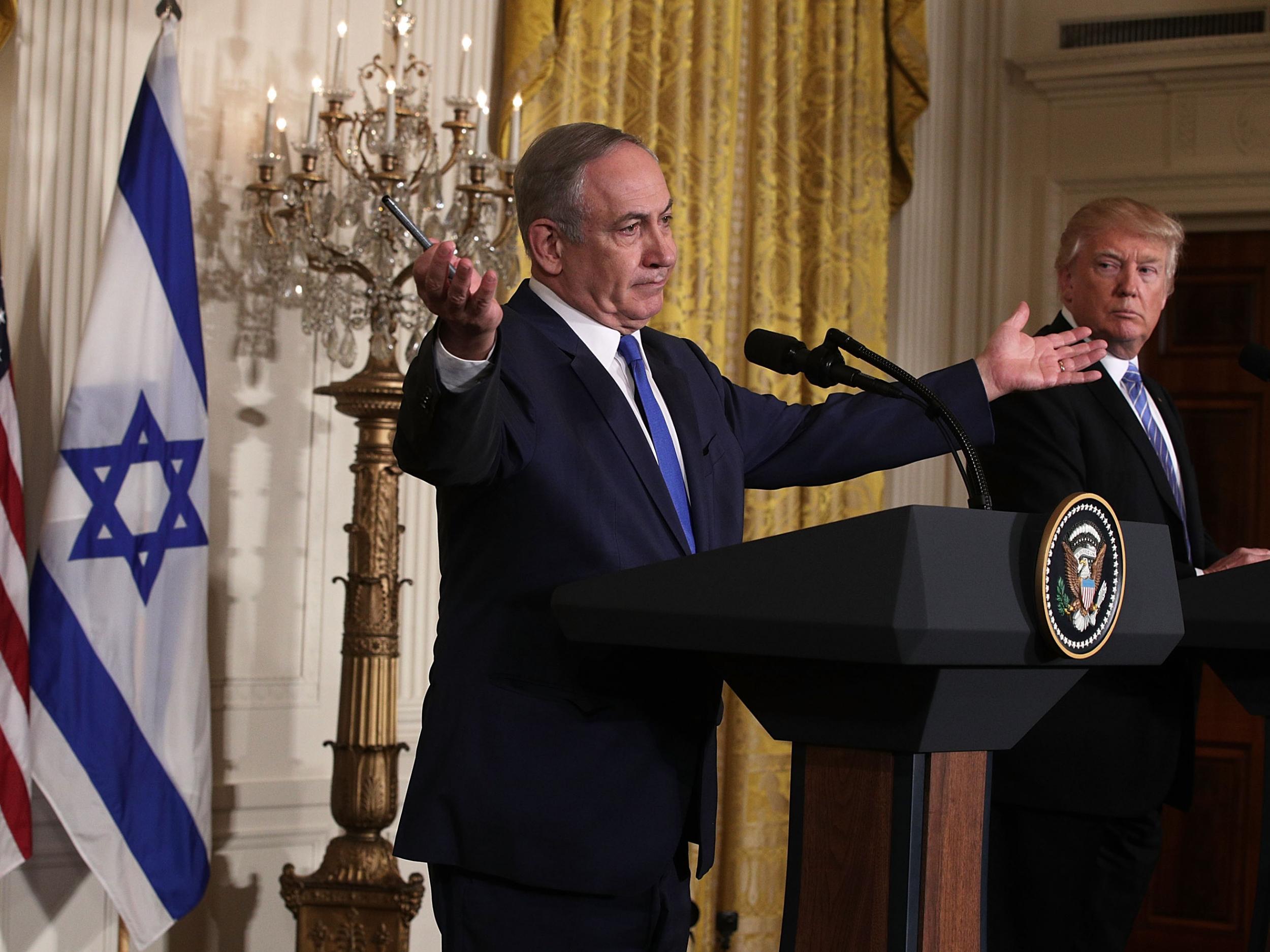Israeli officials 'had previously been advised against sharing information with Donald Trump by US intelligence agents'
Officials 'concerned information given to Moscow could be passed to Tehran'

Your support helps us to tell the story
From reproductive rights to climate change to Big Tech, The Independent is on the ground when the story is developing. Whether it's investigating the financials of Elon Musk's pro-Trump PAC or producing our latest documentary, 'The A Word', which shines a light on the American women fighting for reproductive rights, we know how important it is to parse out the facts from the messaging.
At such a critical moment in US history, we need reporters on the ground. Your donation allows us to keep sending journalists to speak to both sides of the story.
The Independent is trusted by Americans across the entire political spectrum. And unlike many other quality news outlets, we choose not to lock Americans out of our reporting and analysis with paywalls. We believe quality journalism should be available to everyone, paid for by those who can afford it.
Your support makes all the difference.US intelligence agents reportedly warned Israeli officials against giving classified information to Donald Trump's administration because it could be leaked to Russia.
Intelligence concerns, discussed in private meetings, were based on suspected ties between the President's close associates and the Kremlin, a report in January said.
The article, by Israeli daily Yediot Ahronot, has received renewed attention after reports that Mr Trump allegedly disclosed highly classified information to two senior Russian officials.
Israeli intelligence agents were said to be concerned that information given to Russia could be passed on to Iran.
Moscow and Tehran have formed alliances in conflicts such as Afghanistan, Yemen and Syria, while Iran severed all diplomatic ties with Israel following the 1979 revolution in the country.
American intelligence officials had expressed despair at the election of Mr Trump in a meeting with Israel, according to the January report,
They said they believed Russian President Vladimir Putin had "leverages of pressure" over the then-President-elect and urged Israel to "be careful" when handing the White House sensitive information.
Mr Trump’s administration was plunged into fresh controversy this week, after The Washington Post reported the President had divulged highly sensitive information about an attack planned by Isis to Russian Foreign Minister Sergei Lavrov and US Ambassador Sergey Kislyak.
The intelligence was supplied by a US ally in the fight against the militant group, two officials with knowledge of the situation said.
One official said the intelligence discussed by Mr Trump was classified “top secret” and only known by a handful of intelligence officials.
After Mr Trump reportedly disclosed the information in a manner described as spontaneous, officials immediately called the Central Intelligence Agency (CIA) and the National Security Agency (NSA), both of which have agreements with a number of allied intelligence services around the world, and informed them what had happened.
While the President has the authority to disclose even the most highly classified information, in this instance he did so without asking the ally that provided it, which threatens to jeopardise a long-standing intelligence-sharing agreement, the US officials said.
The White House said the allegations were incorrect.
“The story that came out tonight as reported is false,” HR McMaster, Mr Trump's national security adviser, told reporters at the White House.
He added that the leaders reviewed a range of common threats including to civil aviation.
“At no time were intelligence sources or methods discussed," he said. "The President did not disclose any military operations that were not already publicly known... I was in the room. It didn't happen."
The latest controversy came shortly after Mr Trump was heavily criticised for the controversial sacking of FBI Director James Comey.
The President has since been accused by Democrats and others of firing him because he was heading the investigation into possible collusion between the Trump campaign and Russia’s alleged efforts to influence the presidential election.
The White House’s official reasoning for the dismissal is Mr Comey’s handling of the FBI investigation into former Secretary of State Hillary Clinton's private email server.
However, the US leader has stated that he fired him after growing tired of hearing about the FBI investigation into his campaign's possible ties to Russia.
This has led to congressional calls for an independent investigation into allegations of Russian meddling in the 2016 US election.
Join our commenting forum
Join thought-provoking conversations, follow other Independent readers and see their replies
Comments